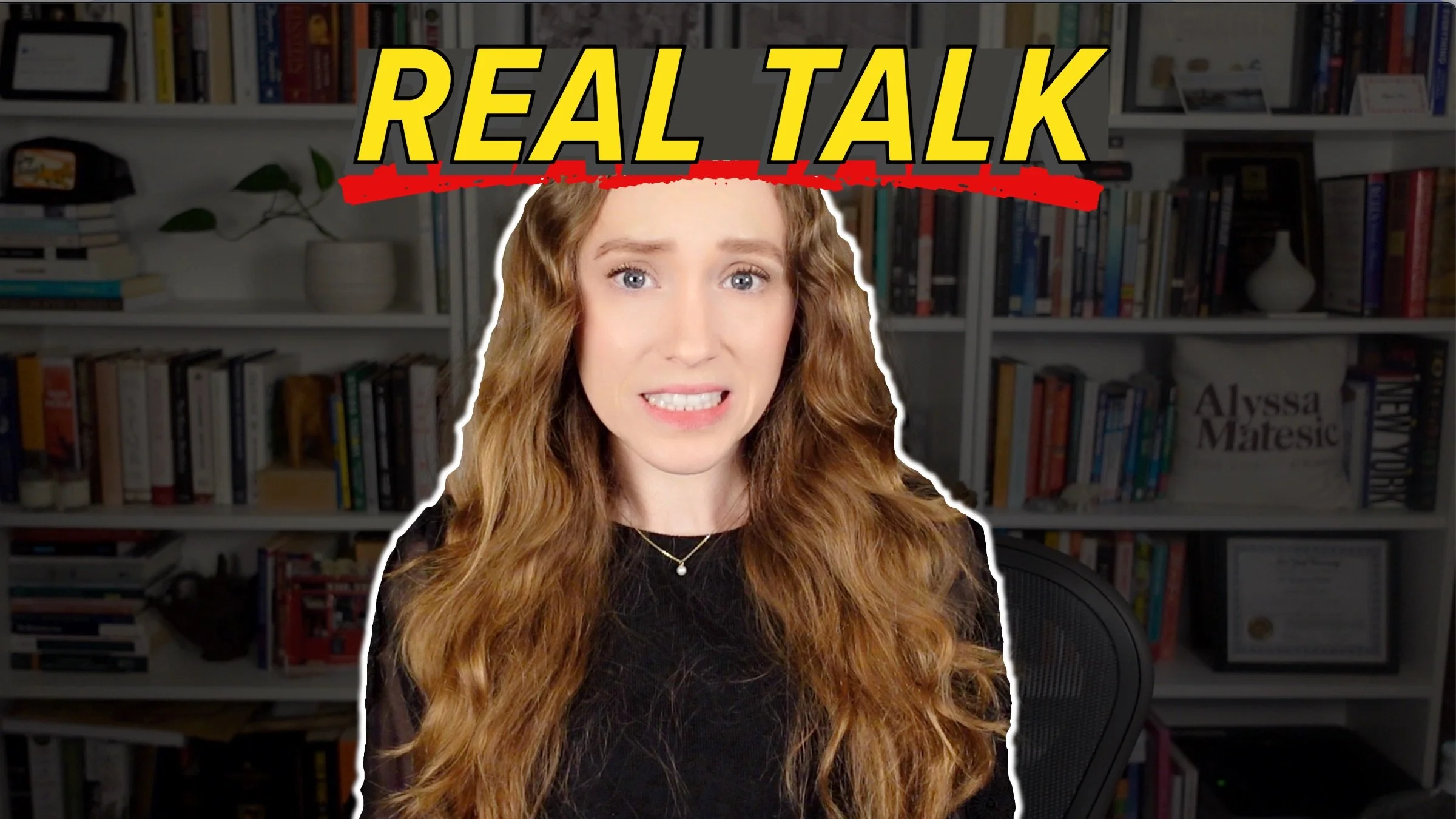What Does it Take to Be a Full-Time Author? 5 Truths You Need to Hear
HIT PLAY OR READ THE POST BELOW:
If you're an aspiring author, you might hope to one day quit your job and solely focus on your writing full-time. And while supporting yourself financially just on your writing might sound like a dream come true, being a full-time author is not without its own set of challenges.
As a professional book editor, I've worked with authors at all stages of their careers, including bestselling authors who supported themselves full-time on writing, and there are some hard truths that you should know if it is your intention to become a full-time author. That’s not meant to be discouraging; rather, it’s important to have a healthy set of expectations as you pursue this goal rather than viewing it through rose-tinted glasses.
1. Financial Stability Is Not Guaranteed
The biggest challenge with being a full-time author is that financial stability is not guaranteed. It is very difficult, typically, for you to earn enough money just from your book sales to support yourself financially full-time, and it takes most authors many years to reach this point in their career where they don't have to have another source of income.
There are certain books that become instant runaway bestsellers, and you might get the impression that these authors are suddenly now thrust into the spotlight and can focus full-time on writing for the rest of their life because they're making a huge profit. But the reality is that even if your book does make a bestseller list, it doesn't necessarily guarantee that you're going to be able to support yourself full-time just on those book sales.
As an author, your income can substantially ebb and flow because your book sales are also going to ebb and flow, and for most authors, it takes publishing several successful books before they are financially stable enough to quit their day job or move away from any other sources of income.
The reality is that many authors, even bestselling authors, still have a day job or other income stream of some kind, whether that is part-time work, freelance work, or supplemental income from a spouse.
With that in mind, I want you to detach from the idea that you haven't made it as an author until you can support yourself financially on your writing. It's a very challenging thing to do, and if you can't support yourself financially on your writing, that doesn't mean you're not a successful writer, because finances are just so fickle in book publishing. Try to separate the idea of success from finances. That's going to give you a lot more freedom and hopefully alleviate some pressure you might feel.
2. It Requires a Business Mindset
As soon as you become a full-time author, or potentially even before you take this step, a switch has to flip in your brain, and you have to realize that writing is no longer just an art form for its own sake; it is now a business that you are supporting yourself on.
The most successful authors are constantly thinking about how they can leverage their personal brand, how they can provide value to their audience, and how they can ultimately market their books successfully to make more sales. So, whether you like it or not, you are going to have to adopt some of this business sales mindset.
What do you want to bring to the table and offer as an author? If you're not prepared to put on the business hat of being a full-time author, it can feel really jarring. So, the sooner that you're able to conceptualize that publishing a book is a business act, the better off you will be.
3. You Need Discipline
When you become a full-time author, if you are traditionally published, you're not becoming an employee of the publishing house; you work for yourself. And while self-employment does grant you a lot of freedom, it also requires a ton of discipline. Now, you have to treat writing like your job because, guess what? It is.
The most successful full-time authors keep writing, no matter what. That doesn't mean that you have to write every single day because that doesn't work for every author. But you do have to have a consistent writing practice that you commit to.
You're going to have to push through writer's block and any other challenges that might come your way, especially if you are on a deadline with your agent or your publisher. Or, if you are publishing a series where readers expect the next installment in a certain timeframe, you're likely going to feel the pressure to meet that publication date as well. Your publisher, or in the case of self-publishing, you as the publisher, are going to want to adhere to that schedule to meet the reader's demand.
This pressure to produce new work can ultimately lead to burnout, and turning out book after book after book can leave you creatively drained, so you need to find a way to balance your writing practice while prioritizing your own mental health and your own creativity. You want to make sure you're able to sustain your writing practice for the duration of your career.
4. You’ll Still Get Rejected
Just because you now make a living just on your writing does not mean that the rejections suddenly go away. The hard truth is that authors get rejected at every stage of their careers, even the most prominent authors. So, the sooner you can accept rejection, the better.
Whether you traditionally publish or you self-publish, you're going to face criticism, bad reviews, and possibly rejection from awards. It's just part of what being an author entails. Learning how to manage these setbacks and not let them deter you is a critical part of being a successful full-time author.
5. It Can Be Isolating
Unless you have a co-writer, the actual act of writing is a solitary act. So, as a full-time author, you're going to have to get very comfortable with spending a lot of time alone with your thoughts. This has to be an environment that you can work and even thrive in.
If you currently work in an office or you have a lot of coworkers, the transition to writing full-time, where people usually work from home, can be really challenging. At worst, it can adversely affect your mental health. So, as you're making this transition, make sure you continue to nurture your professional and your social relationships. That might mean you join a writing group if you aren't in one already, or maybe you spend some days writing from a shared co-working space.
Also, especially if you're working from home, I recommend creating boundaries. Perhaps you can dedicate a certain room or a certain desk area solely to your writing work so that you can physically separate your spaces. Or you could consider creating business hours where you alert your friends and family that you will be working and writing during that time, and they should treat that as if you were at the office.
When you're working as a full-time author at home, the lines can quickly blur between the personal and the professional. This can be liberating, but it can also lead to you working around the clock and becoming overwhelmed, so you want to create those healthy boundaries.
I hope this helped you better understand the reality of what it takes to be a full-time author. Thanks so much for reading, and happy writing!






